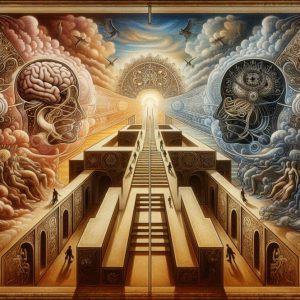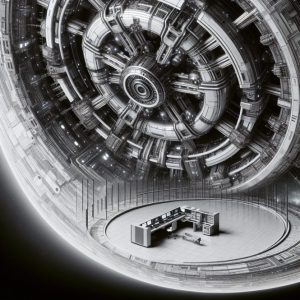
Updated Dec, 2023
Iran Nuclear Deal 2022: Charting the Chilling Journey
The Joint Comprehensive Plan of Action (JCPOA), or the Iran nuclear deal, has been a contentious point in international diplomacy, with implications extending beyond nuclear enrichment and containment. The deal can potentially shape the geopolitical landscape of the Middle East and beyond, but it also raises concerns about regional stability, power dynamics, and ideological clashes.
Israel and Neoconservatives in the United States have been vocal critics of the deal. Israel’s concerns stem from Iran’s potential to expand its influence in the Middle East and the threat it poses to Israel’s security, including Iran’s support for groups that Israel considers hostile. Neoconservatives argue that the agreement is too lenient and does not do enough to curb Iran’s nuclear ambitions or its ability to cause regional instability. They advocate for a more aggressive stance towards Iran, often favouring sanctions and the threat of military action over diplomatic negotiations.
The future of the JCPOA remains uncertain, with its survival depending on a delicate balance of diplomacy, national interests, and regional stability. The deal is more than just an agreement about nuclear weapons; it’s a symbol of the broader tensions and rivalries that define the geopolitics of the Middle East.
Recent developments have further complicated the situation. Iran has allegedly aided Russia’s war in Ukraine with drones and has accelerated its nuclear program, raising the political price of giving Iran sanctions relief. Despite these challenges, diplomatic paths remain open, and the Biden administration has preferred diplomacy, keeping all options on the table in case diplomacy fails.
The JCPOA is enshrined in international law through UNSC Resolution 2231, standing as a testament to what European diplomacy and effective multilateralism can achieve within the rules-based global order. However, the process leading up to it was lengthy and complicated, ruling out another chance at a deal.
Public opinion in Iran about the JCPOA is divided, with a recent poll showing 48 per cent disapproval and 47 per cent approval. This division reflects the complex and contentious nature of the deal, both within Iran and on the international stage.
A Controversial Agreement: The Iran Nuclear Deal
The Iran nuclear deal, formally known as the Joint Comprehensive Plan of Action (JCPOA), was signed on July 14, 2015, marking a historic moment in international diplomacy. The agreement was a product of strenuous negotiations between world powers and Iran, with the primary goal of curbing Iran’s nuclear ambitions in exchange for the lifting of economic sanctions.
However, to truly understand the opposition to this agreement, we must first explore the prominent figures who spearheaded the criticism. At the forefront of this opposition were Israeli Prime Minister Benjamin Netanyahu, Saudi King Salman, and a coalition of neoconservatives led by the unyielding John Bolton. They vehemently labelled the JCPOA as “a historic mistake” and a “diplomatic Waterloo.” These critiques emerged long before the deal’s 159 pages of legalese and technical annexes could have been scrutinized, leading one to ponder: What is it that so deeply troubled these critics?
Beyond Nuclear Enrichment: The Real Concern
The Iran nuclear deal, or the Joint Comprehensive Plan of Action (JCPOA), has been a focal point of international diplomacy since its inception. While the deal’s primary goal was to curb Iran’s nuclear ambitions, the crux of the matter lies not in the fear of Iran acquiring a nuclear weapon. The JCPOA effectively postponed this possibility by over a decade. Instead, the more profound concern lies in the prospect of Iran’s reintegration into the global community as a diplomatic and trading partner of the United States and Europe.
The Prospect of Iran’s Reintegration
The potential reopening of broad relations with Iran has been viewed with hope by European leaders, particularly Federica Mogherini, the High Representative of the European Union for Foreign Affairs and Security Policy, and Philip Hammond, the former British Foreign Secretary. For these leaders, the JCPOA symbolizes an opportunity to engage with Iran on multiple fronts, from diplomacy to trade.
The prospect of Iran’s reintegration into the global community could have significant implications. It could open up new markets for European businesses, foster cultural exchanges, and potentially moderate Iran’s foreign policy. However, this prospect raises the hackles of the JCPOA’s most vocal critics.
The Concerns of Critics
The critics of the JCPOA, including Israel, Saudi Arabia, and a coalition of neoconservatives in the United States, view Iran’s potential reintegration with trepidation. They fear that the lifting of sanctions and the normalization of relations with Iran could empower a regime they view as hostile and destabilizing.
Israel, in particular, has expressed concerns about Iran’s support for groups it considers hostile, such as Hezbollah in Lebanon and Hamas in the Gaza Strip. Saudi Arabia, a regional rival of Iran, fears that a more economically robust Iran could further fuel regional conflicts, particularly in Yemen and Syria.
Neoconservatives in the United States, meanwhile, argue that the deal is too lenient and does not do enough to curb Iran’s regional ambitions. They advocate for a more aggressive stance towards Iran, often favouring sanctions and the threat of military action over diplomatic negotiations.
The JCPOA and Shifting Power Dynamics in Global Politics
The Joint Comprehensive Plan of Action (JCPOA) and its resultant lifting of sanctions offer Iran economic enrichment, leading to potential shifts in global power dynamics. Critics argue this could embolden Iran’s expansionist tendencies and support for Middle Eastern militant movements. Alternatively, it could prompt Iran’s moderation, fueled by increased global interaction and a gradually diminishing conservative clerical grip on power.
This potential transformation raises an important question: Can Iran’s leadership maintain its anti-Western rhetoric and oppressive domestic policies while engaging in diplomacy and trade with Western powers? However, this transformation isn’t guaranteed, causing hesitancy among some, particularly Israelis.
The balance of power is delicate, and changes can be abrupt. The lifting of sanctions could fortify Iran’s economy against future sanctions, potentially increasing its military presence and regional posture through well-funded proxies. Conversely, increased trade and diplomatic engagement could decrease the likelihood of military conflict.
The situation demands caution. The JCPOA doesn’t address all concerns related to Iran, such as its ballistic missile development and support for US-designated terrorist groups like Hezbollah. Furthermore, the JCPOA’s economic benefits for Iran haven’t significantly increased the average Iranian household’s budget, suggesting that national economic benefits may not improve citizens’ living conditions.
Iran Nuclear Deal 2024: Navigating the Uncertain Future
As we enter 2024, the fate of the Iran nuclear deal, officially known as the Joint Comprehensive Plan of Action (JCPOA), hangs in the balance. This exploration dives into the complex dynamics influencing the deal’s survival, examining the current state, the Biden administration’s stance, the role of the European Union, regional dynamics in the Middle East, and the prospects for 2024.
As we enter 2024, the future of the Iran nuclear deal, formally known as the Joint Comprehensive Plan of Action (JCPOA), hangs in the balance. Many factors will determine the survival of this agreement in the years ahead. Here, we delve into the intricate dynamics and assess the probability of the deal’s survival.
The JCPOA has been precarious since the United States withdrew in 2018 under President Donald Trump’s administration. This move led to the re-imposition of heavy economic sanctions on Iran, prompting Iran to abandon many of the deal’s restrictions. As of now, Iran has significantly advanced its nuclear program beyond the limits set by the JCPOA, as confirmed by the International Atomic Energy Agency (IAEA).
The Biden Administration’s Approach:
When President Joe Biden took office in 2021, he signalled his intention to return to the JCPOA but insisted that Iran must first reverse its nuclear advancements. Iran, on the other hand, demanded that the U.S. lift sanctions before taking any steps. This stalemate has continued into 2024, with neither side showing signs of backing down.
The European Union (EU) has been a critical player in the Iran nuclear deal saga. Despite the U.S. withdrawal, the EU, China, and Russia have worked tirelessly to keep the deal alive. However, their efforts have been significantly hampered by U.S. sanctions, which have deterred European companies from doing business with Iran due to fear of U.S. penalties.
The regional dynamics in the Middle East play a crucial role in the future of the Iran nuclear deal. Iran’s regional rivals, notably Israel and Saudi Arabia, have long opposed the agreement, fearing that the lifting of sanctions would empower Iran and increase its influence in the region.
The Prospects in 2024:
Predicting the future of the JCPOA in 2024 is challenging due to the fluidity of international relations. However, several factors could sway the odds.
Firstly, the political climate within Iran and the U.S. could significantly impact the deal’s future. The U.S. midterm elections in 2022 led to a shift in the balance of power in Congress, affecting the Biden administration’s ability to negotiate and lift sanctions. Meanwhile, in Iran, the election of a new president in 2021, known for his hardline stance, could influence Iran’s willingness to return to compliance.
Secondly, the international community’s role will be critical. The EU, China, and Russia could pressure the U.S. and Iran to return to the deal. However, their success will depend on their ability to navigate the complex geopolitical landscape.
Finally, the developments in the Middle East, particularly the conflicts in Yemen and Syria and the ongoing Israel-Palestine issue could hinder or facilitate the revival of the JCPOA, as these are interlinked with the broader U.S.-Iran relations.
In conclusion, while the future of the Iran nuclear deal remains uncertain, the stakes for regional and global security are high. The deal’s survival in 2024 will require adept diplomacy, political will, and a shared commitment to peace and stability from all parties involved.
Thought-Provoking Articles for the Curious

Define Indoctrination: The Art of Subtle Brainwashing and Conditioning

The Statin Scam: Deadly Profits from a Pharmaceutical Deception

Copper Stocks: Buy, Flee, or Wait?

Dow 30 Stocks: Spot the Trend and Win Big

Coffee Lowers Diabetes Risk: Sip the Sizzling Brew

3D Printing Ideas: Revolutionize Your Imagination

Beetroot Benefits for Male Health: Unlocking Nature’s Vitality

Norse Pagan Religion, from Prayers to Viking-Style Warriors

Example of Out of the Box Thinking: How to Beat the Crowd

6 brilliant ways to build wealth after 40: Start Now

Describe Some of the Arguments That Supporters and Opponents of Wealth Tax Make

What is a Limit Order in Stocks: An In-Depth Exploration

Lone Wolf Mentality: The Ultimate Investor’s Edge

Wolf vs Sheep Mentality: Embrace the Hunt or Be the Prey

Best ETF Strategy: Avoid 4X Leveraged ETFs like the Plague
What Might Cause a Change in the Value of Fiat Money? The Fed


